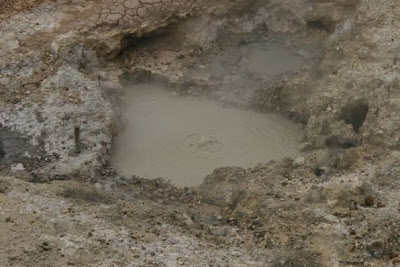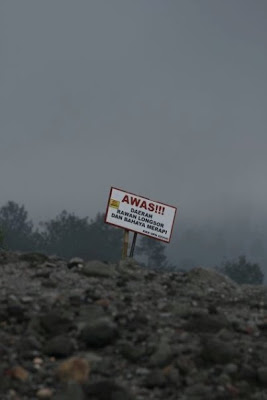How did women fare in 2007?
This article offers a glimpse at a few of last year's gains and setbacks for women all over the world.
By Kathambi Kinoti
Benazir Bhutto, Pakistan's former Prime Minister who recently returned from exile, was assassinated on December 27, 2007. Bhutto, who was her country's first female Prime Minister, was set to run for office in the country's upcoming elections. Her assassination precipitated riots and political turmoil. In February, Zil-e-Huma Usman, a female provincial Cabinet Minister from Pakistan's Punjab region was also assassinated. Her assassin, who confessed to the crime, told police that 'women should not hold important positions.'[2] In May, the country's tourism Minister Nilofar Bakhtiar was forced to resign after 'hardline Islamist clerics branded her 'obscene' for hugging a man after a charity parachute jump.' [3] Another female politician in Afghanistan, Malalai Joya was suspended in what she described as a political conspiracy, after she said that Afghanistan's parliament was 'worse than a stable.' [4]
Women's participation in politics was the subject of a fatwa (religious edict) from Egypt's Grand Mufti in February 2007. In the fatwa, which generated vigorous debate, the Grand Mufti said that 'nothing in Islamic principles prevents women from holding high institutional positions and even becoming president...Islam gives equal political and social rights to men and women.' [5] The president of the Fatwa Commission of the al-Azhar University however drew attention to socio-political realities saying that even if Gomaa's fatwa is backed by valid arguments, in fact what he says is not viable, given the political and social situation.' [6]
Kenya's general elections held on December 27, 2007 saw fifteen women elected to parliament, a record for the country whose previous parliament had only nine elected female members, and nine nominated members out of a total of 222. The number of women in parliament is likely to rise after the different political parties nominate more women as required by the state's constitution. Despite this relative progress, in terms of women's representation in parliament, Kenya continues to lag behind its neighbours in eastern and central Africa.
Conflicts around the world continued to take their toll on women in 2007. The situation in Darfur came no closer to resolution, with women bearing the brunt of the death, destruction, rape and hunger that came in the wake of the conflict. The Democratic Republic of Congo continued to see large scale sexual violence against women and girls. The Inter-American Commission on Human Rights reported on the rape and recruitment of girls and young women by irregular armed forces such as the ultra-rightwing United Self-Defence Forces of Colombia (AUC) and the leftist Revolutionary Armed Forces of Colombia (FARC). Leaders of these paramilitary groups reportedly force them to provide sexual services and do domestic work. [7] In February, it was reported that Mynamar's military has been guilty of killing, raping and torturing with impunity ethnic Karen women. [8] Disputes over the result of the presidential elections in Kenya have led to political turmoil. Hundreds of people have been killed, tens of thousands have been displaced, and there has been an upsurge in the rape of women and girls. [9]
In April 2007, the United Nations war crimes tribunal passed a landmark judgement against a Bosnian Serb military policeman for participating in the notorious campaign of rape against Muslim Serb women in the town of Foca in 1992. The indictment against the policeman for the first time charged rape and sexual enslavement as a crime against humanity.
Last year was tumultuous for women's rights defenders in Iran, particularly from the beginning of July. A number of them took part in the One Million Signatures Campaign that seeks to educate women in Iran about their rights and to reform laws that discriminate against women. Several women's rights activists were arrested as they collected signatures in support of the
campaign. When some of them refused to sign an agreement to stop their activities, they were charged with 'actions against national security' and transferred to prison. Other activists were arrested when they participated in peaceful demonstrations for women's rights. International pressure helped in securing the release of most of these activists, albeit under stringent bail conditions for many of them. [10] It was reported that in Zimbabwe security forces were routinely sexually abusing and otherwise torturing women human rights activists who demonstrated against human rights abuses, forced evictions and food shortages in the country. [11]
Abortion continued to be a major women's rights issue in 2007. Pro-choice groups in Nicaragua lobbied their Congress in vain to overturn a no-exceptions law passed in 2006 that banned all abortions even where the woman's life is at risk. It was reported that the ban has had a devastating impact on women's health and lives' with women being afraid to seek even health services that are legal. [12] In Portugal, after a referendum, abortion laws were reformed. Abortion is now authorised for pregnancies that are up to ten weeks old. In cases of rape, abortions are permissible up to 16 weeks into gestation and where the foetus is found to have a congenital malformation or incurable disease, up to 24 weeks. However a number of women were unable to take advantage of the new laws due to 'conscientious objection' by doctors. [13] The European Union's highest human rights court challenged Poland's restrictive laws on abortion when it awarded a Polish woman damages after she was denied abortion services in
spite of health risks. Mexico City's legislature in April agreed to allow abortion during the first three months of pregnancy. Mozambique also considered legalizing abortion, pushed by its health ministry which argued that unsafe abortion is the third leading cause of maternal mortality in the country. At the end of 2006, Togo had amended its laws to allow for abortion resulting from rape or incest.
Saudi Arabia is the only country in the world that bans women from driving. In September a group of Saudi women formed a committee to lobby for women to be allowed to drive. The action of the group, though it has not yet resulted in a reversal of the law, highlights the fact that no women's rights gains should be taken for granted.
__________________
Notes:
1. Quoted in 'India's first female president sworn in.' Reuters Africa, July 25, 2007.
2. 'Cabinet Minister Killed in East Pakistan.' Guardian Unlimited, February 21, 2007.
3. 'Female Afghan and Pakistani politicians forced from office.' Guardian Unlimited, May 23, 2007.
4. See note 3.
5. Quoted in 'Fatwa over women in politics stirs controversy.' AKI Italy, February 5, 2007.
6. See note 5.
7. 'Women Suffer Abuse Behind the Front Lines.' Inter Press Service News Agency, January 23, 2007.
8. 'Myanmar military accused of raping ethnic Karen women.' Guardian Unlimited, February 12, 2007.
9. 'Scores in hospital after rape ordeal.' Daily Nation, January 2, 2008.
10. Radio Free Europe, November 17, 2007.
11. 'Zimbabwe police torture women activists.' Reuters Africa, October 10, 2007.
12. 'Over their Dead Bodies' Human Rights Watch, 2007.
13. 'Epidemic of Conscientious Objection to Performing Abortion. Inter Press Service, July 20, 2007.
-
AWID is an international membership organization committed to gender equality and a just and sustainable development process. AWID facilitates an open exchange among researchers, practitioners, policymakers and others in order to develop effective and transformative approaches for improving the lives of women and girls worldwide. If you are not already a member of AWID, please visit our web site at www.awid.org to find out more.
-
The Association for Women's Rights in Development
215 Spadina Avenue, Suite 150
Toronto, ON M5T 2C7
CANADA
Tel: 416-594-3773
Fax: 416-594-0330
Email: awid@awid.org
Web: www.awid.org



